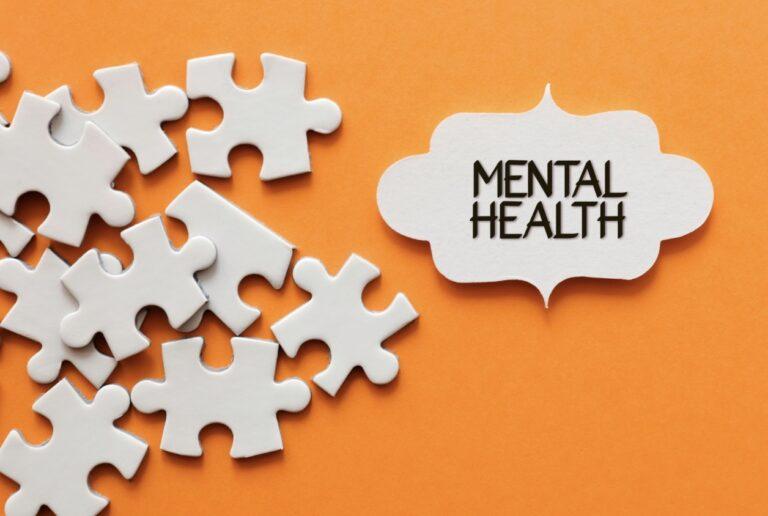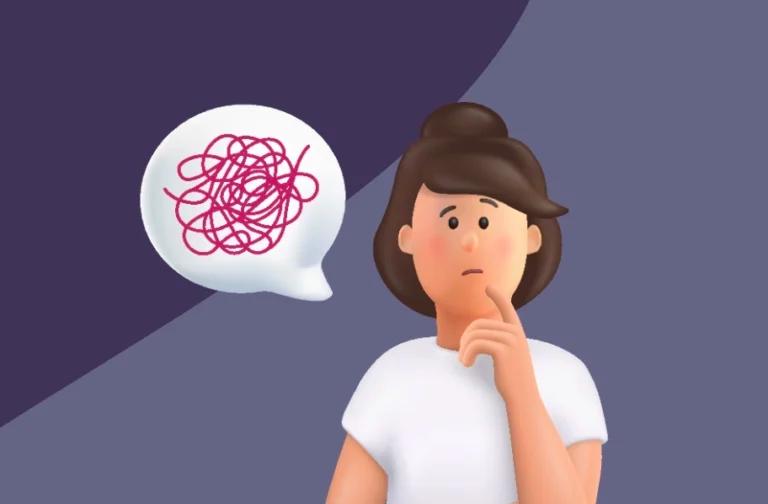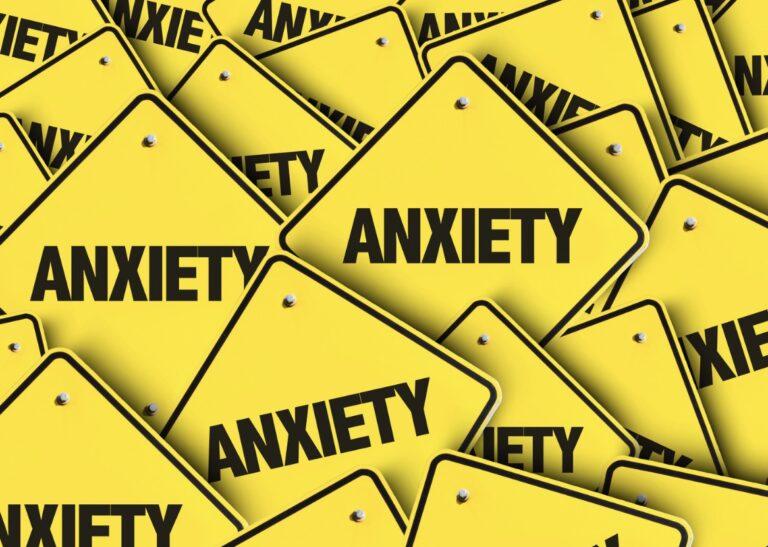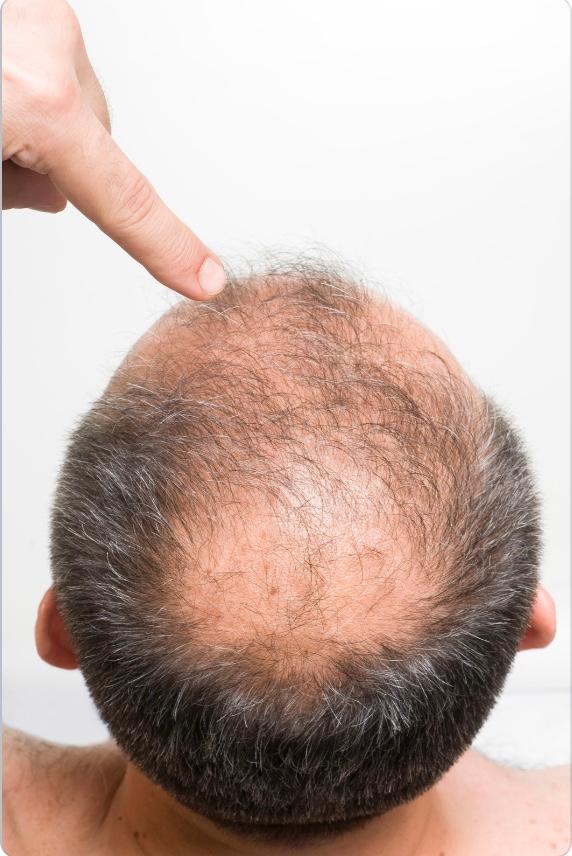Anxiety
Get valuable insights into Anxiety, including its causes, symptoms, prevention strategies, and treatment options, while also learning about how you can lower the cost of the medications used to treat Anxiety.

MEDICAL INFORMATION
Anxiety Key Facts
Related Medications
Anxiety is a prevalent mental health condition characterised by excessive worry, fear, and a sense of apprehension. It can significantly impact an individual’s daily life and overall well-being. Here, we provide you with an in-depth understanding of anxiety, including its causes, symptoms, diagnostic criteria, and treatment approaches. Recognising the underlying factors, identifying at-risk individuals, and implementing evidence-based interventions are crucial for healthcare or psychiatry professionals in effectively managing anxiety and supporting individuals in their journey to recovery.
What is the definition of anxiety?
The clinical definition of anxiety refers to a mental health condition characterised by excessive and persistent worry, fear, or apprehension. It is considered a normal human response in certain situations, but when it becomes disproportionate, uncontrollable, and interferes with daily functioning, it may be classified as an anxiety disorder.
According to the Diagnostic and Statistical Manual of Mental Disorders, 5th Edition (DSM-5), anxiety disorders encompass a range of conditions that share common features of excessive fear and anxiety. These disorders include generalised anxiety disorder (GAD), panic disorder, social anxiety disorder, specific phobias, agoraphobia, obsessive-compulsive disorder (OCD), and post-traumatic stress disorder (PTSD), among others.
What are the different types of anxiety disorders?
There are several types of anxiety disorders recognized in clinical practice. Each type is characterized by specific symptoms and patterns of anxiety. Here are the different types of anxiety disorders:
Generalized Anxiety Disorder (GAD)
- GAD is characterized by excessive and persistent worry about various aspects of life, such as health, work, relationships, and everyday situations
- Individuals with GAD often have difficulty controlling their worry, and the anxiety is accompanied by physical symptoms such as restlessness, fatigue, muscle tension, and difficulty concentrating
- The worry and anxiety in GAD are typically present for at least six months
Panic Disorder
- Panic disorder involves recurrent and unexpected panic attacks, which are sudden episodes of intense fear or discomfort
- Panic attacks are often accompanied by physical symptoms like a rapid heart rate, chest pain, shortness of breath, dizziness, and a sense of impending doom
- People with panic disorder often worry about experiencing future panic attacks and may avoid certain situations or places to prevent them
Social Anxiety Disorder (Social Phobia)
- Social anxiety disorder involves an intense fear or anxiety in social situations, where individuals may be exposed to possible scrutiny or judgment by others
- People with social anxiety disorder may fear being embarrassed, humiliated, or negatively evaluated by others, leading to avoidance of social interactions or performance situations
- Physical symptoms like blushing, sweating, trembling, and difficulty speaking may occur in social anxiety disorder
Specific Phobias
- Specific phobias involve an excessive and irrational fear of specific objects, situations, or activities
- Common specific phobias include fear of heights (acrophobia), animals (zoophobia), flying (aviophobia), or blood/injections (hemophobia)
- Individuals with specific phobias tend to avoid the feared object or situation, or endure it with intense anxiety
Obsessive-Compulsive Disorder (OCD)
- OCD is characterized by the presence of obsessions and/or compulsions
- Obsessions are intrusive and unwanted thoughts, urges, or mental images that cause distress, while compulsions are repetitive behaviours or mental acts performed to alleviate anxiety or prevent a feared outcome
- Common obsessions include contamination fears, intrusive thoughts of harm, and doubts. Compulsions often involve rituals like excessive hand-washing, checking, or counting
Post-Traumatic Stress Disorder (PTSD)
- PTSD can develop after exposure to a traumatic event, such as military combat, natural disasters, serious accidents, or violence
- Symptoms include intrusive memories or flashbacks, avoidance of reminders of the traumatic event, negative mood and changes in thinking, and heightened arousal or reactivity
- Individuals with PTSD may experience intense anxiety, hyper-vigilance, and a sense of detachment from others
Agoraphobia
- Agoraphobia is when an individual fears being in situations where they feel escape may be difficult or that help wouldn’t be available if something goes wrong
- Someone with agoraphobia may be scared of travelling:to a shopping centre
- on public transport
- away from their home
- If an Individual with agoraphobia experiences their fears, it can lead to a panic attack with symptoms of including rapid breathing (hyperventilating), rapid heartbeat, feeling sick, feeling hot and sweaty
Separation Anxiety Disorder (SAD)
SAD is common in toddlers and children between the ages of 6 months and 3 years and signs include:
- Too much worry about the safety of a family member
- Repeated nightmares with a theme of separation
- Too much worry about getting lost from family
- Refusing to go to school
- Fearful and reluctant to be alone
- Lots of worry when parted from home or family
- Too much worry about the safety of a family member
Each type of anxiety disorder has its own diagnostic criteria, and individuals may experience symptoms from multiple anxiety disorders simultaneously. A thorough evaluation by a mental health professional is essential for accurate diagnosis and appropriate treatment planning.
What are the causes and risk factors associated with anxiety?
Biological Factors
- Genetic Predisposition: There is evidence that anxiety disorders can run in families, suggesting a genetic component. Certain gene variations may increase susceptibility to anxiety disorders
- Neurochemical Imbalance: Neurotransmitters like serotonin, norepinephrine, and gamma-aminobutyric acid (GABA) play a role in regulating mood and anxiety. Imbalances in these neurotransmitters have been linked to anxiety disorders
- Brain Structure and Function: Differences in the structure and function of certain brain regions involved in emotional processing, such as the amygdala and prefrontal cortex, have been associated with anxiety disorders
Environmental Factors
- Early Life Experiences: Adverse childhood experiences, such as trauma, neglect, or abuse, can increase the risk of developing anxiety disorders later in life
- Stressful Life Events: Significant life events, such as a job loss, divorce, or the death of a loved one, can trigger or exacerbate anxiety symptoms
- Chronic Stress: Prolonged exposure to stressors, such as work-related stress or financial difficulties, can contribute to the development of anxiety disorders
Psychological Factors
- Temperament and Personality Traits: Individuals with certain personality traits, such as high levels of neuroticism or perfectionism, may be more prone to anxiety disorders
- Cognitive Factors: Distorted thinking patterns, negative self-beliefs, and a tendency to catastrophize or overestimate threats can contribute to the development of anxiety disorders
- Learned Behaviors: Observing and internalizing anxious behaviors or responses from significant others can influence the development of anxiety in individuals
Medical Conditions and Substance Use
- Chronic Medical Conditions: Certain medical conditions, such as cardiovascular diseases, respiratory disorders, and hormonal imbalances, can be associated with increased risk of anxiety disorders
- Substance Use and Withdrawal: Substance abuse, particularly of drugs like alcohol, stimulants, or benzodiazepines, can lead to or exacerbate anxiety symptoms. Withdrawal from certain substances can also trigger anxiety
Family History
Having a family history of anxiety disorders or other mental health conditions can increase an individual’s risk of developing anxiety.
It’s important to note that these factors do not guarantee the development of an anxiety disorder, but rather increase the likelihood. The interplay between these factors is complex and can vary among individuals.
What are the symptoms and clinical presentation of anxiety?
The symptoms of Anxiety disorders can manifest both emotionally and physically. The symptoms and clinical presentation of anxiety may vary depending on the individual and the specific anxiety disorder they experience. Here are common symptoms and clinical presentations associated with anxiety:
Emotional Symptoms
- Excessive Worry: Persistent and intrusive worry or fear about various aspects of life, such as health, work, relationships, or everyday situations
- Irritability: Feeling easily annoyed or agitated, with a reduced tolerance for stressors
- Restlessness: A sense of being on edge or unable to relax
- Fear: Intense apprehension or a feeling of impending doom, often without a specific cause
- Difficulty Concentrating: Problems focusing or maintaining attention due to racing thoughts or preoccupation with anxiety
Physical Symptoms
- Cardiovascular Symptoms: Rapid heartbeat (palpitations), chest tightness, or a sensation of a racing heart
- Respiratory Symptoms: Shortness of breath, rapid or shallow breathing, or feeling suffocated
- Gastrointestinal Symptoms: Nausea, stomachaches, indigestion, or diarrhea
- Muscle Tension: Muscle aches, tension headaches, or a clenched jaw
- Fatigue: Feeling tired, lethargic, or lacking energy, often due to disrupted sleep patterns associated with anxiety
- Sleep Disturbances: Difficulty falling asleep, staying asleep, or experiencing restless and unrefreshing sleep
Cognitive Symptoms
- Racing Thoughts: Persistent, rapid, or intrusive thoughts that may jump from one concern to another
- Excessive Rumination: Overthinking or dwelling on negative events, worries, or worst-case scenarios
- Difficulty Concentrating: Inability to focus, easily getting distracted, or experiencing mind fog
- Catastrophic Thinking: Expecting the worst outcome in situations, even when evidence suggests otherwise
- Heightened Alertness: Hypervigilance, constantly scanning the environment for potential threats
Behavioral Symptoms
- Avoidance: Avoiding situations, places, or activities that trigger anxiety
- Rituals or Compulsions: Engaging in repetitive behaviors or mental rituals to reduce anxiety (common in obsessive-compulsive disorder)
- Social Withdrawal: Avoiding social interactions, isolating oneself, or experiencing discomfort in social settings (common in social anxiety disorder)
It’s important to note that individuals with anxiety may experience a combination of these symptoms, and the severity and duration can vary. Anxiety symptoms may significantly interfere with daily activities, social relationships, work or school performance, and overall quality of life.
How is anxiety diagnosed?
Anxiety is diagnosed through a comprehensive evaluation conducted by a healthcare professional, typically a mental health specialist such as a psychiatrist or psychologist. The diagnostic process involves gathering information about the individual’s symptoms, medical history, and psychosocial factors. Here are the key components involved in diagnosing anxiety:
Clinical Interview
- The healthcare provider conducts a thorough interview to gather information about the individual’s symptoms, including the frequency, duration, and intensity of anxiety-related experiences
- They may ask about specific triggers or situations that provoke anxiety and how the symptoms impact daily functioning and quality of life
Diagnostic Criteria
- The Diagnostic and Statistical Manual of Mental Disorders, 5th Edition (DSM-5), published by the American Psychiatric Association, provides the criteria for diagnosing anxiety disorders
- The healthcare provider assesses if the individual’s symptoms align with the specific criteria outlined for the particular anxiety disorder, such as generalised anxiety disorder, panic disorder, social anxiety disorder, or others
Differential Diagnosis
- The healthcare provider differentiates anxiety disorders from other mental health conditions that may present with similar symptoms, such as depressive disorders, post-traumatic stress disorder, or obsessive-compulsive disorder
- They consider the individual’s symptom profile, history, and duration to arrive at an accurate diagnosis
Self-Report Questionnaires
- Standardized self-report questionnaires, such as the Beck Anxiety Inventory (BAI) or the Generalized Anxiety Disorder 7-item scale (GAD-7), may be used to assess the severity and specific symptoms of anxiety
- These questionnaires provide additional information and can be helpful in monitoring treatment progress
Medical Evaluation:
- In some cases, a medical evaluation may be conducted to rule out any underlying medical conditions or medication side effects that could contribute to anxiety symptoms
- The healthcare provider may request blood tests or other medical assessments to ensure there are no physical causes for the symptoms
It’s important to note that the diagnosis of anxiety disorders should be made by qualified healthcare professionals based on the individual’s unique presentation and clinical judgment. The process involves a comprehensive evaluation of symptoms, psychosocial factors, and ruling out other possible causes. Once diagnosed, appropriate treatment options can be explored to help manage anxiety effectively.
What are the treatment approaches for anxiety?
Cognitive-Behavioral Therapy (CBT Psychotherapy)
- Identifying and challenging negative thought patterns
- learning coping skills
- behavioral techniques.
- CBT is a type of talk therapy
Medications
- Selective Serotonin Reuptake Inhibitors (SSRIs)
- Serotonin-Norepinephrine Reuptake Inhibitors (SNRIs),
- Benzodiazepines for short-term use
Other Therapies
- Acceptance and Commitment Therapy (ACT)
- Mindfulness-Based Stress Reduction (MBSR)
- Exposure Therapy
Self-Help Strategies
- Stress management
- relaxation techniques
- regular exercise
- healthy lifestyle practices
What medications are used to treat anxiety?
Medications can be an important component of the treatment plan for individuals with anxiety disorders. They can help alleviate symptoms and improve overall functioning. Here are some commonly prescribed medications used to manage anxiety:
Selective Serotonin Reuptake Inhibitors (SSRIs)
- fluoxetine (Prozac)
- sertraline (Zoloft)
- escitalopram (Lexapro)
- paroxetine (Paxil).SSRIs are commonly prescribed as first-line medication options for various anxiety disorders
Serotonin-Norepinephrine Reuptake Inhibitors (SNRIs)
- venlafaxine (Effexor)
- duloxetine (Cymbalta)
- desvenlafaxine (Pristiq).
- SNRIs are another class of antidepressant medications that can be effective in treating anxiety
Benzodiazepines
- alprazolam (Xanax)
- clonazepam (Klonopin)
- diazepam (Valium)
- lorazepam (Ativan)
Benzodiazepines are fast-acting sedatives that can provide immediate relief for acute anxiety symptoms. They are typically prescribed for short-term use due to the potential for dependence and withdrawal.
Buspirone
Buspirone is an anti-anxiety medication that is used for the treatment of generalized anxiety disorder (GAD). It is less likely to cause sedation or dependence compared to benzodiazepines.
Beta-Blockers
- propranolol (Inderal)
- atenolol (Tenormin).Beta-blockers are primarily used to manage cardiovascular conditions but can also help reduce the physical symptoms of anxiety, such as rapid heartbeat and trembling, especially in performance or social anxiety situations
What support is there for people living with anxiety in the UK?
In the UK, there are various support options available for individuals living with anxiety. These resources aim to provide information, guidance, and therapeutic interventions to help individuals manage their anxiety effectively. Here are some support options commonly available:
- National Health Service (NHS). Primary Care: Start by contacting your general practitioner (GP) or primary care provider. They can assess your symptoms, provide advice, and refer you to appropriate services
- Improving Access to Psychological Therapies (IAPT): IAPT services offer evidence-based therapies such as Cognitive Behavioral Therapy (CBT) for anxiety disorders. These services are available through the NHS and can be accessed through self-referral or GP referral
- Mind: Mind is a prominent mental health charity in the UK, providing information, advice, and support to individuals experiencing mental health difficulties. They offer resources, helplines, and local services
- Anxiety UK: Anxiety UK is a charity specifically focused on supporting individuals with anxiety disorders. They provide helplines, online resources, therapy services, and access to support groups
- Samaritans: Samaritans is a confidential helpline available 24/7 for emotional support, including anxiety-related concerns. They offer a listening ear and provide support for individuals in distress
- Private therapists and counselors specializing in anxiety disorders are available for individuals seeking additional support outside of the NHS. It is advisable to choose registered and accredited professionals
What support is there for people living with anxiety in the US?
In the United States, there are various support options available for individuals living with anxiety. These resources aim to provide information, guidance, and therapeutic interventions to help individuals manage their anxiety effectively.
- Mental Health Professionals. Psychologists, psychiatrists, and licensed therapists specialize in diagnosing and treating anxiety disorders. They provide individualized therapy, counseling, and medication management, if necessary. Primary care physicians can also offer initial assessments and referrals to mental health specialists
- National Alliance on Mental Illness (NAMI) – NAMI is a national organization that offers education, support, and advocacy for individuals with mental health conditions, including anxiety disorders. They provide resources, support groups, helplines, and educational programs
- Anxiety and Depression Association of America (ADAA). ADAA is an organization dedicated to providing resources, information, and support for individuals with anxiety disorders, depression, and related conditions. Their website offers resources, self-help tools, and information on finding therapists and support groups
- Online Resources and Apps – Anxiety and stress management apps, such as Calm, Headspace, or Sanvello, offer guided meditation, relaxation techniques, and anxiety tracking tools. Websites like ADAA and NAMI provide educational articles, self-help resources, and information on finding local support
- Support Groups – Local support groups, facilitated by mental health organizations, hospitals, or community centers, can provide a supportive environment for individuals to connect, share experiences, and learn coping strategies
- Crisis Hotlines – National Suicide Prevention Lifeline: A 24/7 helpline providing support and crisis intervention. Call 1-800-273-TALK (1-800-273-8255). Crisis Text Line: A 24/7 text-based crisis support service. Text “HOME” to 741741
- Employee Assistance Programs (EAP) – Many workplaces offer EAPs, which provide confidential counseling services and resources for employees, including support for anxiety-related concerns
- Insurance Coverage – Mental health services, including therapy and medication management for anxiety disorders, are often covered by health insurance plans. Check with your insurance provider for coverage details
- National Institute of mental Health
Summary
Anxiety disorders are common and treatable conditions that require a comprehensive and personalised approach. Early recognition, accurate diagnosis, and appropriate treatment interventions are crucial for individuals with anxiety disorders to achieve improved well-being and quality of life.
NowPatient has taken all reasonable steps to ensure that all material is factually accurate, complete, and current. However, the knowledge and experience of a qualified healthcare professional should always be sought after instead of using the information on this page. Before taking any drug, you should always speak to your doctor or another qualified healthcare provider.
The information provided here about medications is subject to change and is not meant to include all uses, precautions, warnings, directions, drug interactions, allergic reactions, or negative effects. The absence of warnings or other information for a particular medication does not imply that the medication or medication combination is appropriate for all patients or for all possible purposes.
























